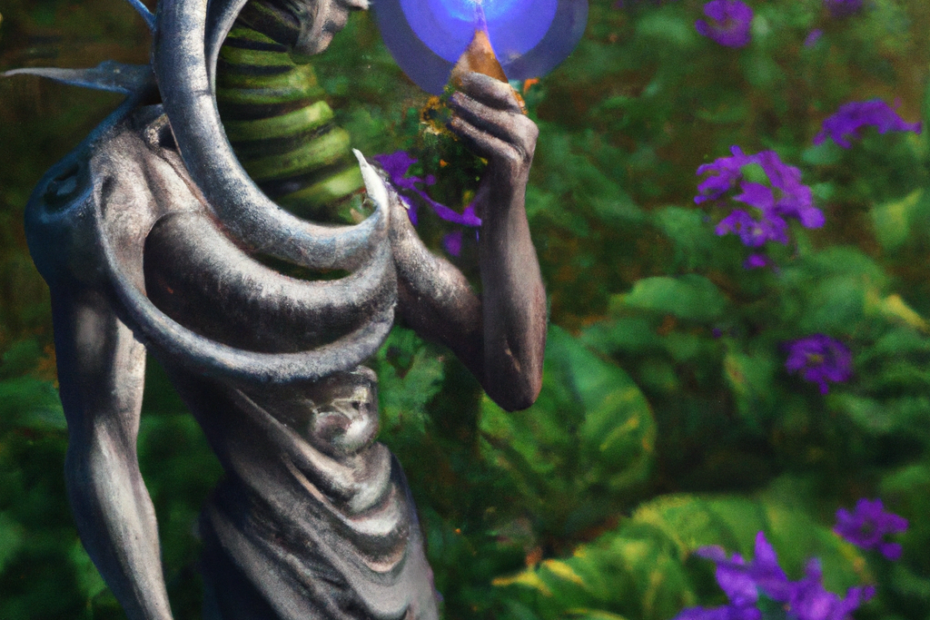Salvia, a psychoactive plant native to Mexico, has gained attention for its potential health benefits and risks. In this comprehensive article, we delve into the legality of salvia in Maine, exploring the laws and regulations surrounding its use and sale in the state.
We also examine the potential risks associated with salvia use, including its ability to cause hallucinations and physical side effects. We explore the potential health benefits of salvia, including its purported ability to help with depression, anxiety, and pain relief. We investigate how salvia affects the brain, the active compounds in salvia, and its interactions with other substances. We provide insights into the different forms of salvia available and where it can be legally purchased in Maine.
Whether you are curious about the legal status of salvia in Maine or interested in its potential effects on health, this article aims to provide a comprehensive overview of the topic.
What is Salvia?
Salvia, also known as Salvia divinorum, is a psychoactive plant that is commonly consumed for its mind-altering effects and potential medicinal use as an herbal remedy.
Originating from the cloud forests of Mexico, Salvia has a long history of use in traditional healing practices by Mazatec shamans. Its unique psychoactive compound, salvinorin A, distinguishes it from other plants. When consumed, its effects include intense but short-lived hallucinations, altered perceptions, and dissociation. Despite its recreational use, some studies suggest its potential in treating conditions like depression, addiction, and chronic pain. Its historical significance lies in the spiritual rituals of indigenous cultures and its role as a sacred plant.
Is Salvia Legal in Maine?
The legality of Salvia in Maine is subject to specific regulations and state laws that dictate its consumption, possession, cultivation, and distribution within the state.
What Are the Laws and Regulations Surrounding Salvia in Maine?
The laws and regulations surrounding Salvia in Maine encompass its legal status, possession limits, cultivation restrictions, and enforcement measures, as defined by state legislation governing controlled substances.
Individuals in Maine are subject to strict legal requirements regarding the possession of Salvia. The state imposes specific possession limits, which vary based on the form and concentration of the substance. Cultivation of Salvia is strictly regulated, with laws outlining the permissible conditions and limitations for cultivation activities.
In terms of distribution, Maine has stringent regulations in place to monitor and control the sale and distribution of Salvia, with penalties for violations outlined by the enforcement framework established under state law.
What Are the Potential Risks of Salvia Use?
The consumption of Salvia carries potential risks and effects that may be subject to specific restrictions, warranting an understanding of its potential impact on individuals and the associated limitations.
Can Salvia Cause Hallucinations?
Salvia has the potential to induce hallucinations due to its psychoactive and mind-altering properties, making it a notable candidate as a mind-altering drug.
This plant-derived substance, containing the active compound salvinorin A, interacts with the kappa opioid receptors in the brain, leading to altered perception, vivid visions, and a distorted sense of reality. These hallucinatory effects are often accompanied by a sense of detachment from surroundings and a heightened introspective experience. Consequently, due to its potent psychoactive nature, salvia is classified as a potential drug of concern in various jurisdictions, warranting caution and regulation in its usage and distribution.
Can Salvia Cause Physical Side Effects?
The consumption of Salvia may lead to physical side effects, impacting individuals considering its potential medicinal use and highlighting the need for a comprehensive understanding of its physiological impact.
These side effects can include dizziness, dry mouth, and increased heart rate, which are important factors for those exploring the potential medicinal applications of Salvia. Understanding the physiological impact of these effects is crucial in determining the suitability of Salvia for specific medical conditions and ensuring the safety of its consumption.
A thorough exploration of the physical side effects can provide valuable insights into the dosage, administration, and potential interactions with other medications, contributing to the informed use of Salvia in medical contexts.
What Are the Health Benefits of Salvia?
Salvia holds potential health benefits, including its purported efficacy in addressing depression, anxiety, and providing relief from certain types of pain, which has generated interest in its potential medicinal use.
Can Salvia Help with Depression and Anxiety?
Salvia has been studied for its potential to alleviate symptoms of depression and anxiety, positioning it as a candidate for medicinal use in addressing mental health conditions.
Research has shown that salvia contains compounds that can positively affect the brain and mood regulation. Its potential to act as a natural antidepressant and anxiolytic is particularly intriguing, offering promising alternatives for those seeking non-pharmaceutical interventions.
The anti-inflammatory and antioxidant properties of salvia can contribute to overall mental well-being, making it a valuable consideration in the realm of holistic mental health treatment.
Can Salvia Be Used for Pain Relief?
The potential of Salvia to offer relief from certain types of pain has prompted research into its role as a potential medicinal alternative for managing pain-related conditions.
Several studies have suggested that compounds found in Salvia, such as salvinorin A and various flavonoids, may exhibit analgesic properties that could help alleviate pain. Salvia has been traditionally used in herbal medicine for its anti-inflammatory and antispasmodic effects, which further supports its potential in managing pain.
This herb’s potential as a natural pain reliever has drawn attention to its possible application in treating conditions such as migraines, arthritis, and neuropathic pain.
How Does Salvia Affect the Brain?
The impact of Salvia on the brain is influenced by its active compounds and psychoactive nature, as well as its interactions with other substances, making it a subject of scientific interest and scrutiny.
What Are the Active Compounds in Salvia?
Salvia contains active compounds that contribute to its impact on the brain, influencing its psychoactive effects and potential physiological and psychological outcomes.
These active compounds, such as salvinorin A, act on the kappa opioid receptors in the brain, leading to altered perceptions, mood changes, and even dissociative experiences. The psychoactive effects of salvia are primarily attributed to these compounds’ ability to modulate neurotransmitters, such as dopamine and serotonin, which play crucial roles in regulating mood and cognition.
Research suggests that these interactions may have potential implications for understanding and treating various mental health conditions, although further studies are needed to fully comprehend their impact.
How Does Salvia Interact with Other Substances?
The interactions of Salvia with other substances can modulate its effects on the brain, contributing to its psychoactive properties and potential influence on cognitive processes.
Exploring the combined effects of Salvia with other substances, such as alcohol or antidepressants, reveals a complex interplay that can alter neurotransmitter activity and brain function. These interactions may lead to varied cognitive experiences, ranging from enhanced perception to altered reality. Understanding the intricate relationship between Salvia and other substances is crucial in assessing the potential risks and benefits, as it offers insights into the intricate mechanisms of brain function and the psychoactive nature of these substances.
What Are the Different Forms of Salvia?
Salvia is available in different forms, including extracts and the raw plant material, with variations such as Salvia Divinorum being subject to specific legal considerations and regulations.
Is Salvia Extract Legal in Maine?
The legality of Salvia extract in Maine is subjected to specific regulations and restrictions, defining its status within the state and its permissibility for possession and consumption.
These regulations outline that while Salvia itself is not classified as a controlled substance in Maine, the extraction of its active compounds may fall under controlled substance laws. Therefore, possession and sale of Salvia extract may be subject to legal restrictions.
It is important for individuals to be aware of the legal nuances surrounding Salvia extract in Maine to avoid any unintended legal repercussions.
Is Salvia Divinorum Legal in Maine?
The legality of Salvia Divinorum in Maine is subject to specific regulations and laws governing its possession, highlighting the legal considerations and restrictions surrounding this particular variation of Salvia.
The state of Maine strictly regulates the possession and sale of Salvia Divinorum, with specific laws in place to govern its use. According to Maine law, Salvia Divinorum is classified as a Schedule Z drug, making it illegal to possess, sell, or distribute. Individuals caught in possession of Salvia Divinorum may face legal consequences, such as fines and potential imprisonment. Therefore, it is crucial for residents of Maine to be aware of the legal implications associated with the possession and use of this particular variation of Salvia.
Where Can You Purchase Salvia in Maine?
The purchase of Salvia in Maine is influenced by its distribution channels and the availability of the substance within the state, subject to the legal framework and regulations governing its sale and acquisition.
The distribution channels for Salvia in Maine range from specialized herbal and botanical stores to online retailers and licensed dispensaries. Availability within the state can vary, as some areas may have more access to the product than others. The legal framework governing its sale and acquisition is outlined in Maine’s laws, which specify the permitted uses and restrictions regarding the purchase and possession of Salvia.
Frequently Asked Questions
Is Salvia legal in Maine?
According to Maine state laws, Salvia is currently legal for individuals 21 years or older.
Can I purchase Salvia in Maine?
Yes, you can legally purchase Salvia in Maine as long as you are 21 years or older.
Can I use Salvia in public in Maine?
No, Salvia use is prohibited in public spaces in Maine. It is only legal for private use in a private residence.
What are the penalties for underage possession of Salvia in Maine?
Underage possession of Salvia is considered a civil violation in Maine and can result in a fine of up to $500.
Is Salvia possession legal for medical purposes in Maine?
No, Salvia is not recognized as a medical treatment and medical use of this substance is not permitted in Maine.
Can I transport Salvia across state lines if it is legal in Maine?
No, it is illegal to transport Salvia across state lines, even if it is legal in both states.
John Marston, a seasoned writer since 2009, has penned hundreds of articles on Salvia Divinorum across the web. As a full-time writer at a prominent online salvia retailer, he continues to contribute valuable insights, combining expertise and passion to unravel the diverse facets of Salvia Divinorum. Beyond his writing, John serves as a budtender in the cannabis industry.




